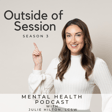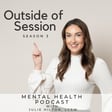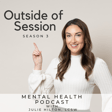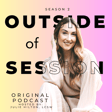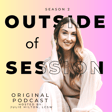
Integrative and Holistic Psychiatry
This week on Outside of Session, we’re tackling an incredibly important topic: the intersection of psychiatry and mental health.
Joining me is Dr Ata, a board-certified psychiatrist, as we explore how psychiatry fits into the bigger picture of healing, break down common misconceptions, and discuss how medication and therapy can work hand-in-hand.
In this episode, we’ll break down what holistic psychiatry is, how it differs from conventional approaches, and why more people are turning to this integrative method. What happens when we look beyond traditional prescriptions and start considering the whole person—their lifestyle, diet, sleep, and even spiritual well-being? Holistic psychiatry seeks to connect those dots, aiming to treat the mind, body, and soul together.
About today's guest:
Dr. Ata is a psychiatrist currently based in Georgia whose goal is to provide a holistic approach to treating mental health. After completing his residency training in General Psychiatry in Texas through Texas Institute for Graduate Medical Education and Research (TIGMER), he has moved to Georgia and currently holds an adjunct faculty appointment with the Augusta University/UGA Medical Partnership and also is an attending psychiatrist providing education and training to current residents.
Dr. Ata has extensive training in treating all mental health paying specific attention to holistic/integra psychiatry. Holistic psychiatry is a mental health treatment approach that focuses on the patient as a whole, not just their symptoms. Holistic psychiatrists consider a patient’s physical, mental, emotional, social, and spiritual well-being. He has a special interest in mood and anxiety disorders, post-traumatic stress disorders, ADHD, OCD, integrative medicine.
Connect with Dr. Ata:
https://www.instagram.com/altumpsychiatry/#
https://altumpsychiatry.com/
